Vive la difference.
It’s nearly two years since our wanderings ceased and we began a more normal life. We took jobs that our parents understood. We had an address, (albeit a caravan), we took our place on the voter’s role.
Two years of itchy feet.
Our Welsh tour, and this year’s tour of the north did little to assuage that itch.
We’ve seen more of Cornwall than ever before, often camping within walking distance of home.
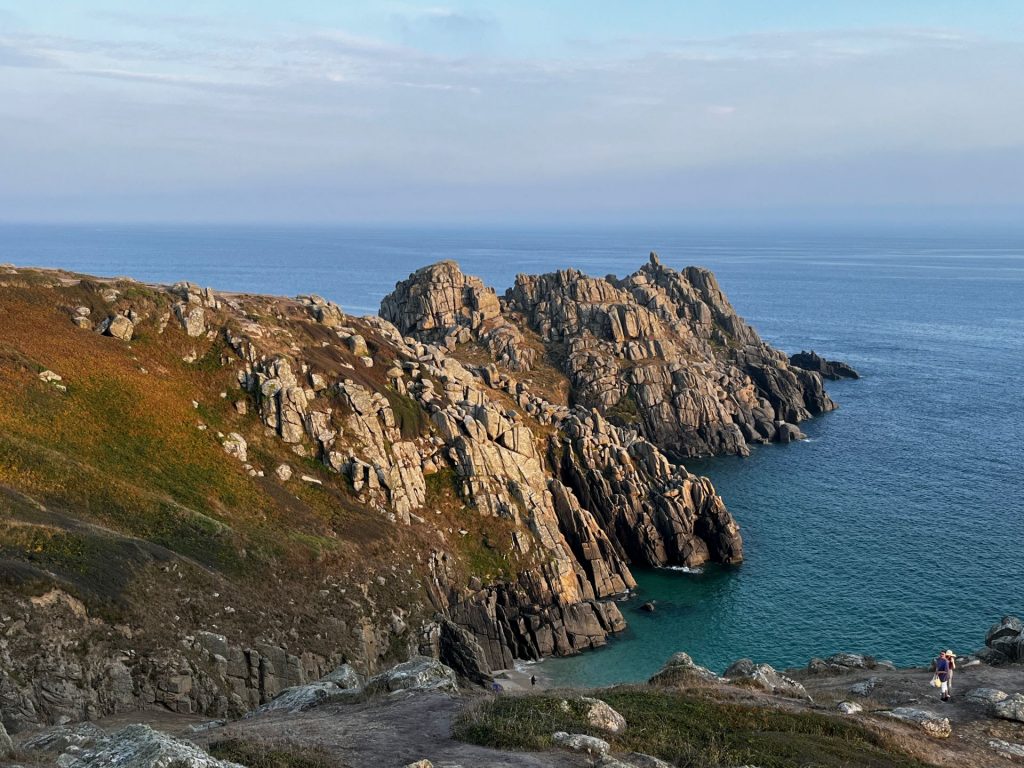
It has been wonderful. But it’s all on our little island. While Britain has an exciting and varied landscape, it’s one we’re familiar with. It’s a language that we’re pretty good at. It doesn’t involve much thought or challenge.
Bring on September. Bring on our nearest neighbour. Brittany is one and a half times the size of Wales, as Celtic as anywhere, yet just a ferry ride from home.
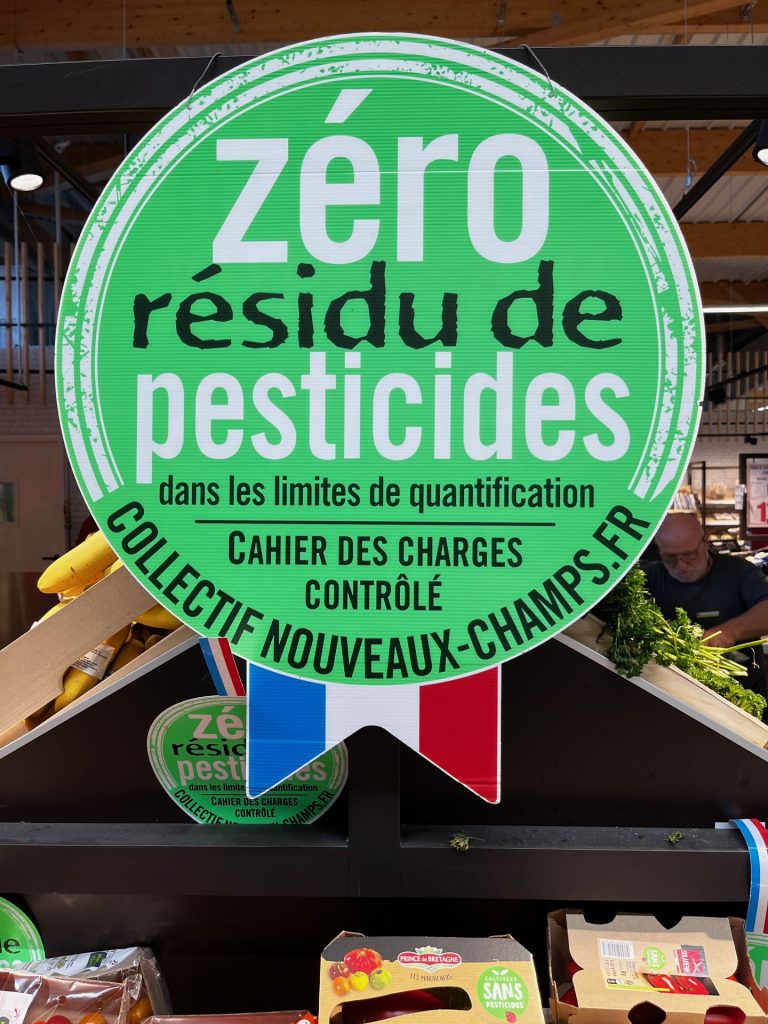
Amorique.
After work on Friday, a quick shower, we gather a few scraps of clothes, and we’re off.
Two an a half hours to Plymouth and there are our friends Dominic and Lizzy, queuing for the ferry on their bikes. They’re getting a thorough examination from customs, I suspect Dominic said something that would amuse you and I but that the officer took offence to.
It’s easy driving onto the Amorique. None of that terrifying reversing up 33% incline ramps that the Greeks and Italians inflict on travellers.
At the bar the staff are all smiles, catching the queuing customers’ eyes and letting them know with a glance that their beer would be with them soon.
After banter with our friends we retire to our cabin. Tired. Aching for sleep, but excited too. We have a porthole! We’ve never had that before. Other than that the cabin could have come from the same box as the several we’ve used overnight on Adriatic crossings.
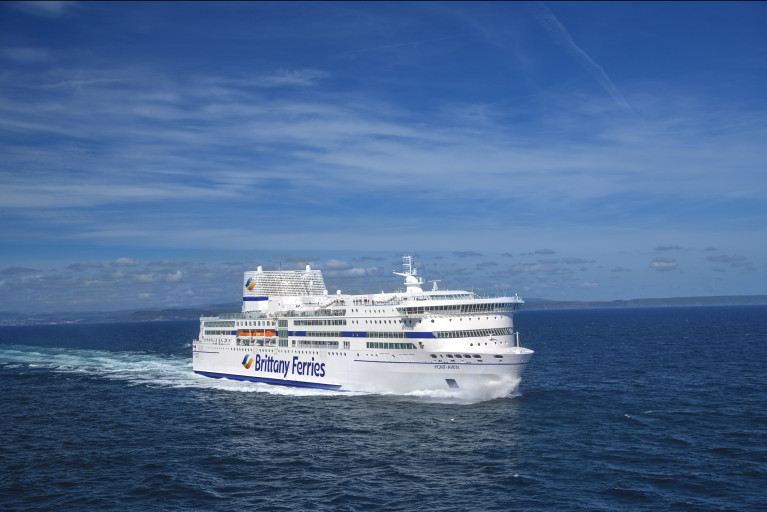
Dawn breaks over the water. A damp sky mutes the colours, but there is Roscoff, as pretty as any port, and on the quay the Saturday morning brocante sellers are setting up their stalls.
We know and love the town, but we’ll save a pause there for our return next weekend. Now we’re bound for the west, ready to absorb the differences that make travel so rewarding and educational.
Space.
On the outskirts of town every field is productive. Artichokes in various stages of readiness are the common crop. The edges are fringed with a few remaining sunflowers, looking sad with their bowed and browning heads.
The first impression of France is usually one of space. Big, detached houses built on big plots with gardens so different from ours. As we leave town the fields open out. Massive fields, bordered by dense wooded boundaries. And there’s no one in sight. Just a few cars on the big, smooth roads, but hardly a soul abroad.
Saturday morning. Where is everyone?
A littoral tour.
We’ll hug the coast for this drive.
At the first stop in Ruscumunoc (sounds like a Brêton Roscommon, that could be near Botallack, or could be a county in Ireland) we gaze out from France’s most westerly point.
It’s too early to settle, and whilst the aire is spacious and free, there’s nowhere to get the Brêton cidre I’m so looking forward to.
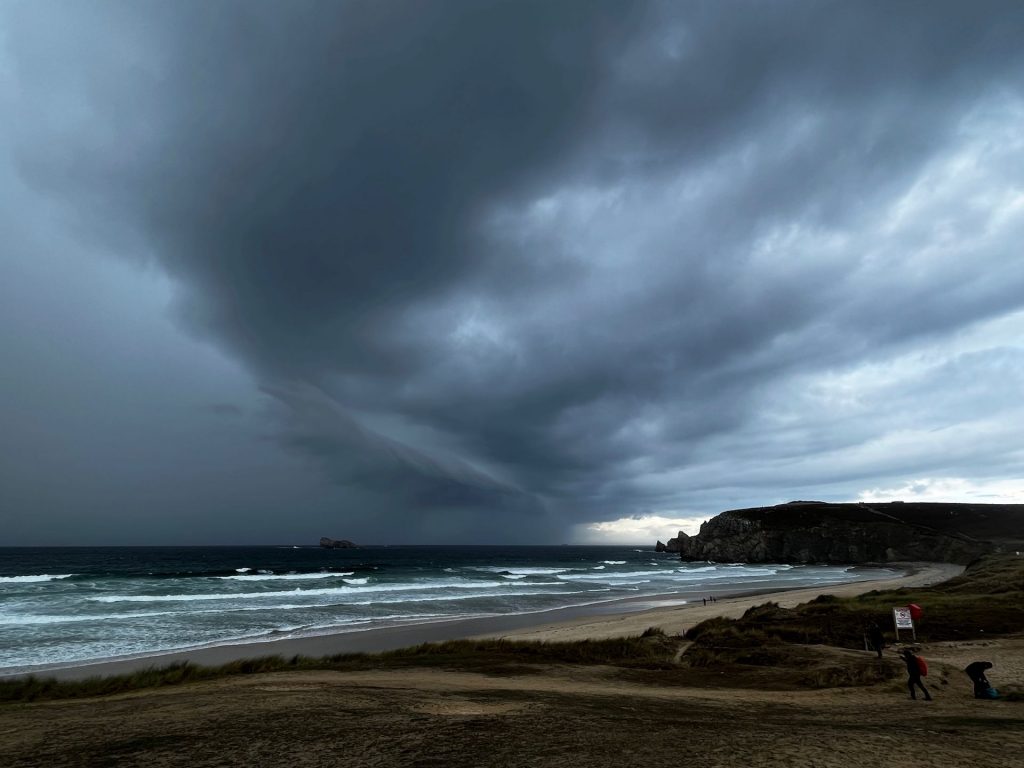
Plougonvelin.
Down the coast at Plougonvelin where the aire’s facilities are out of action. No shower, no water, no emptying facilities. Still, it’s only £9 a night for fabulous seafront parking and there’s everything you could want within a 15 minute walk.
Plougonvelin was once a village by the sea. Now the tiny centre thrives from the business of the hundreds of smart French holiday homes that surround it, while retaining its character in that most French of styles.
That centre is largely unchanged, and is still a place to live a more simple life, despite the wealth of those building their palaces around it.
Perhaps that’s the way it could be at home – the town is for living in, and the holiday homes can sit a little outside. There’s anti-second homes graffiti that suggests local folk feel otherwise.
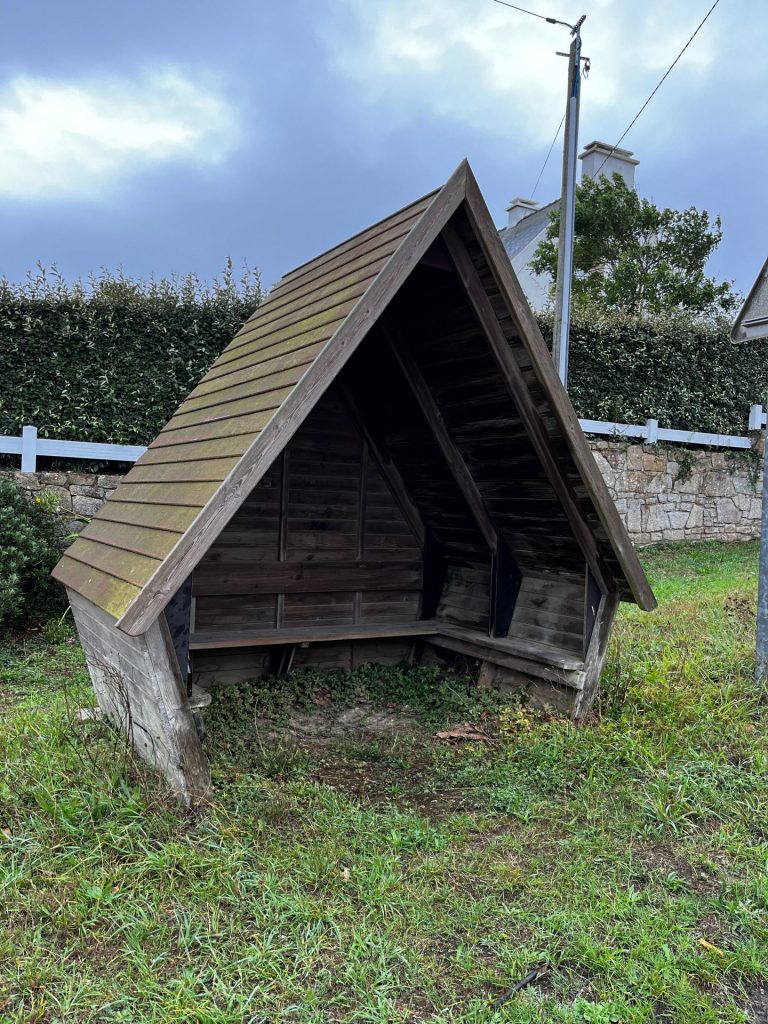
The changing demographic of the old Frenchman.
The old French were once the kings of smoking. A paille (yellow paper cigarette, literally a straw) hung from the lip of the old man, threatening to ignite the tobacco stained thatch of his moustaches. He made his small bol of rough red last the whole of the match on the bar’s TV. His beret. His work jacket. His baggy trousers.
Today outside L’univers, the bar on the church square, the old boys had the decency not to wear lycra, but subtle sportswear is the new dress code. Their animated conversation has turned from the match, turned from politics, it’s now centred on the merits of the suspension on their electric bikes.
Les Pecheurs, the simple seafood restaurant, was our target for dinner, but it has closed through ill health, and a peep through the curtains suggested that it wouldn’t be opening again. We’re sorry. Instead Ti Mad Eo served up excellent pizza with good beers for Minty to drown in.
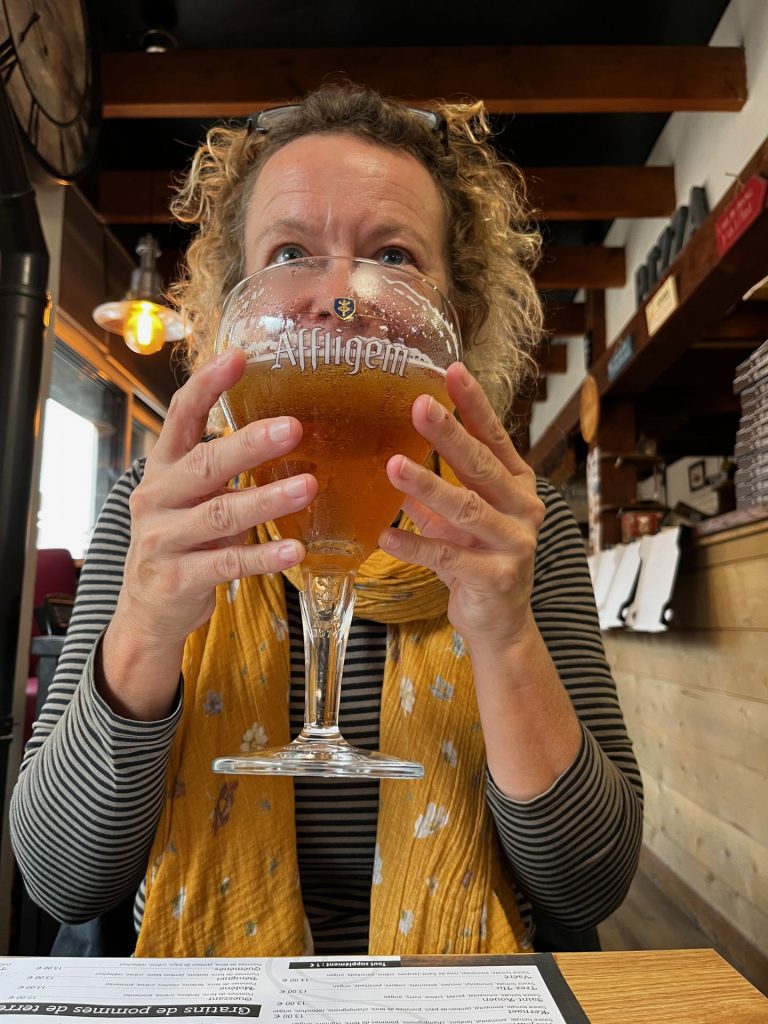
The first van night abroad in nearly two years brought lashing rain and strong winds – a perfect rocking for tired Cornish Wanderers. It may be a short trip – but we’re back on the road.
It’s a good job we have work to return to – that long road south is calling, and without our small responsabilities it’d be hard to resist.
Camaret sur Mer.
After a short stop at the pretty medieval trading port of Le Faou we keep heading west to Camaret sur Mer. It’s an artists’s colony, a fishing port and now, above all, a holiday destination.
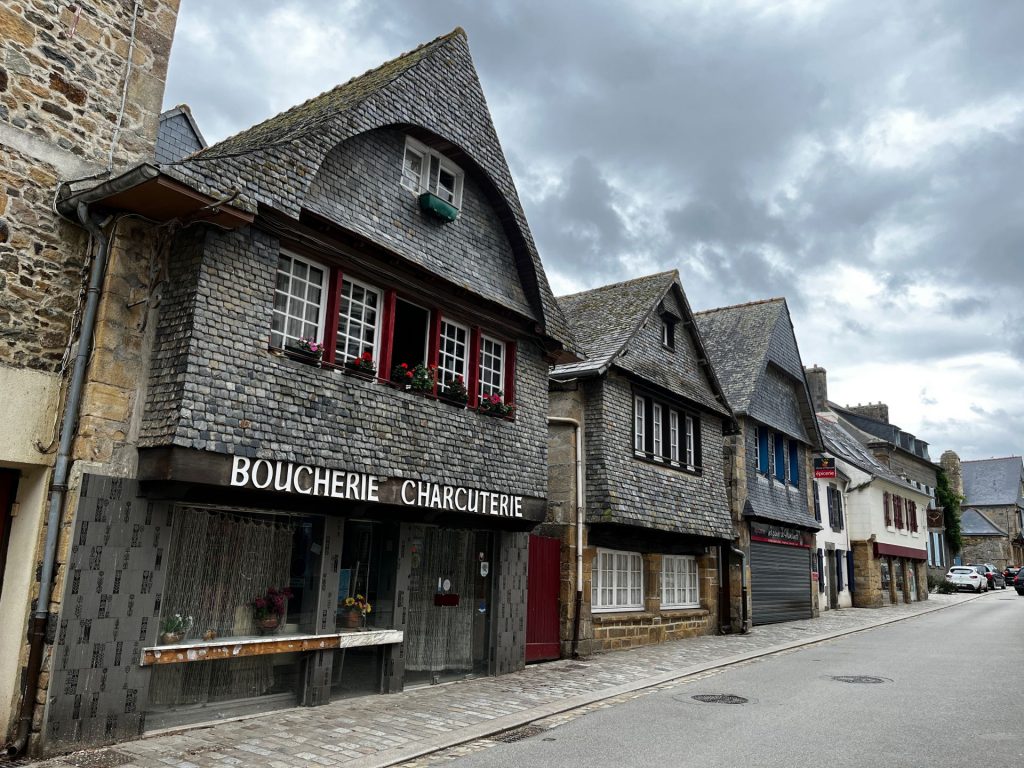
Arriving on the 4th of September it’s festival time, and unlike the British shops who’d capitalise on the extra trade, the French take the opportunity to close for a few days and take a rest after the summer rush. Fortunately the excellent Crêperie de la Marine felt no need for repose and served us with fine galettes and jugs of cidre.
The marine graveyard here once held scores of abandoned boats, an eerie reminder of the sardine and lobster trade that once made this town buzz. Now only five remain. Soon these five will return to the sands.
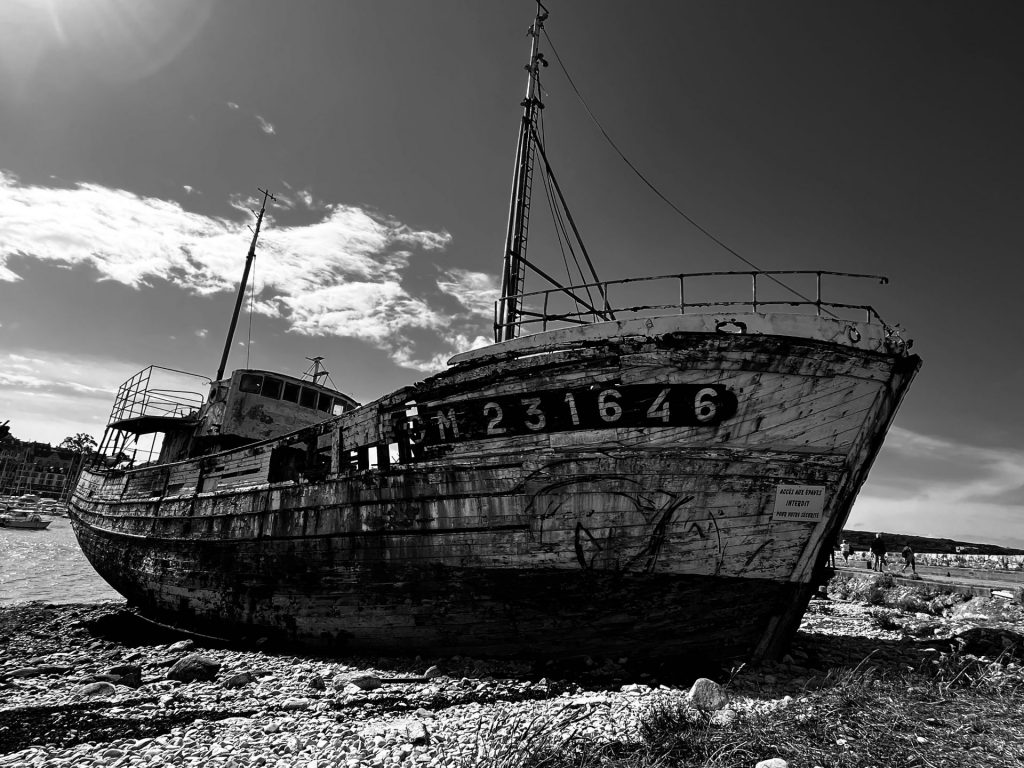
On my birthday heavy showers are driven on strong gusts of wind, but our walk to the Plage de Pen Hat was largely dry. Here swimming is prohibited year round. The sea looked tempting, it looked dangerous too.
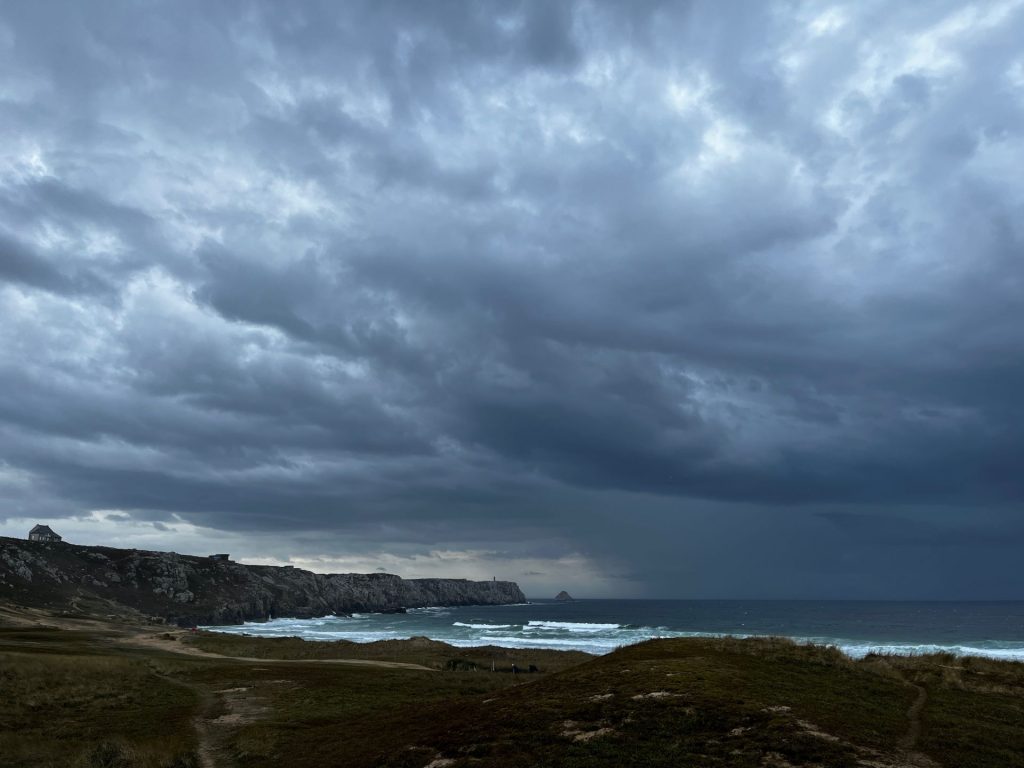
The beach is overlooked by the ruins a the manor house built for a poet, the self styled, Saint Pol Roux. He lived here overlooking the bays in front and behind until it the Germans invaded, looted and then occupied the house in 1940. In a final insult it was bombed by allied forces in 1944, just days before the liberation of Camaret.
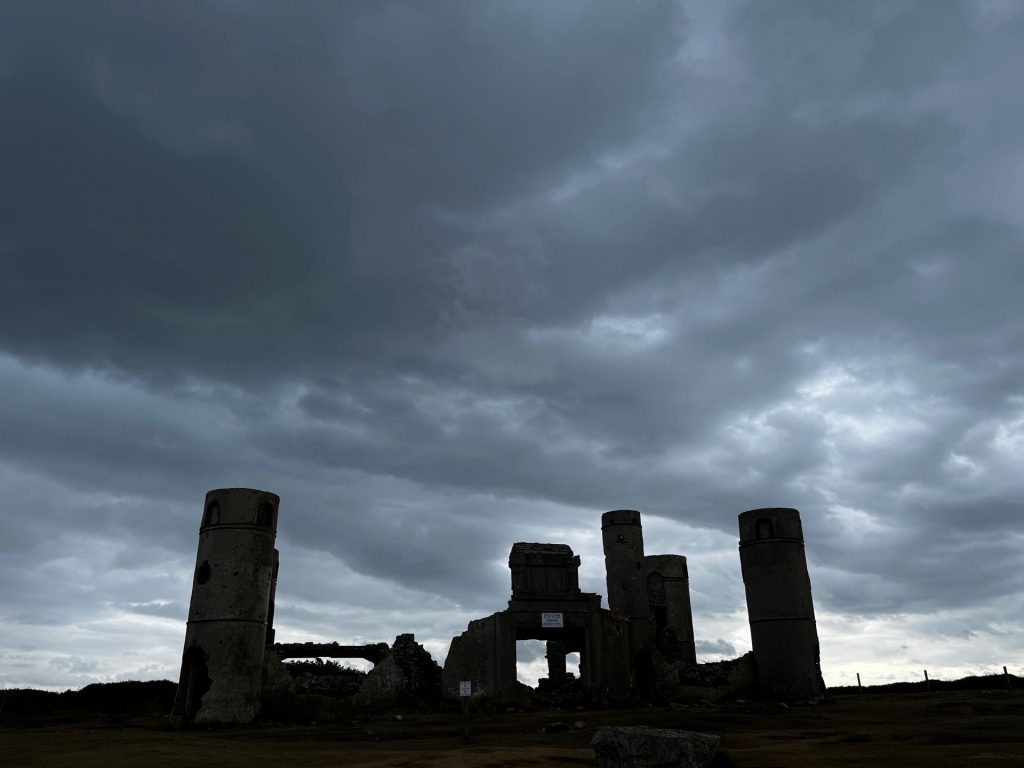
The magnificent peninsula soars and drops before us. There are islands (Ouessant) way off to the north west and the natural drama is palpable. I’m forced to admit that there’s more Cornwall here than in Cornwall. I want to take this very slowly, to absorb every landmark and sample every cidre, but time marches on and we have to rest as well as see.
A simple lunch of baguette, Le President, saucisson sec and a Brêton cheese.
Breaking the pattern of work brings out our true fatigue. We’ve slept like the dead for two nights, and now a siesta is tempting too.
Birthday dinner.
We’d planned a trip to Les Viviers de Terenez, we had a quiet lunch there for my 50th, but Les Viviers closes on Mondays (and several other days, it’s France after all).
There’s nothing for it then. La Crêperie de la Marine it has to be.
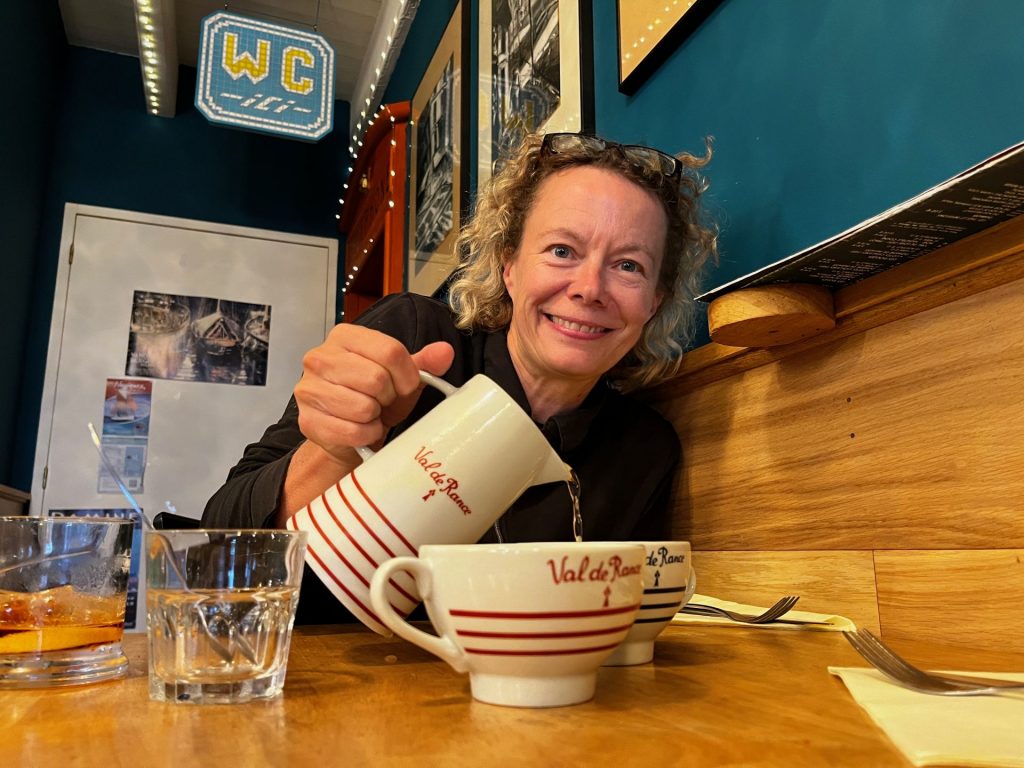
La Marine is a happy place. Le Maître and his team pump up the volume just before service and finish their prep in a frenzy accompanied by French folk rock band La Rue Kétanou. When several customers moan about how loud it is they’re told to hang on, it’ll only be for a few minutes. Sure enough, before it’s time to place our orders, relative tranquility is restored.
Bowls of cidre. Lambig (Brittany seems to have created a term for its distilled apple hooch, unfortunately it doesn’t have the same ring as Normandy’s well established calvados) and excellent crêpes. We rolled home to the van sated and only about £30 lighter.
Which crêpe? There are many combinations to try, but my advice is go for Le Complêt with an egg every time. Le Complêt describes anything with emmental and ham – could be a sandwich, could be a crêpe.
Are the French happier?
We stereotype the French as a surly bunch, particularly those in hospitality, but I’m beginning to question this. I think the French have had an injection of enthusiasm, while Britain’s gradual slide towards third world status must be dragging our national psyche down too. It’s not just the “bonjour” from passers-by, it feels as though everyone has been briefed to smile and be helpful.
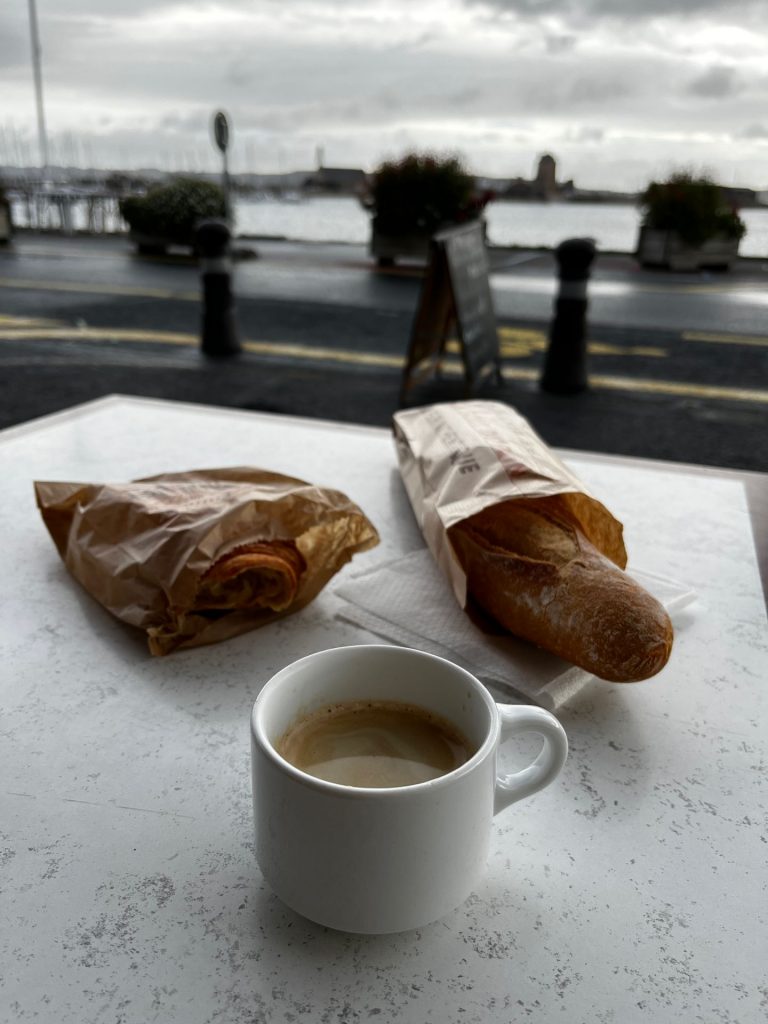
Abbey of Saint Gwenolé.
Twelve years ago, unguided, unhindered, by Google Maps, we came this way and happened upon the Abbey of St Gwenolé.
It was the second time I’d visited a modern abbey, and the second time I’d been utterly absorbed by the simple beauty.
Yesterday we visited again.
Often in ancient religious buildings the floor will be an extravagant work of art, created, repaired, and amended over ages. Here the public walk on unadorned coir, while the monks float over sycamore that butts seamlessly to a slightly raised dais of granite, on which a basic granite alter sits.
The strips of wood that make the ceiling are the same as the public pews. Side benches are not just benches, each has a cast frame, a single hand hewn seat.
The organ frames the east lights perfectly. The sides are lit by high heavy 50s modern stained glass.
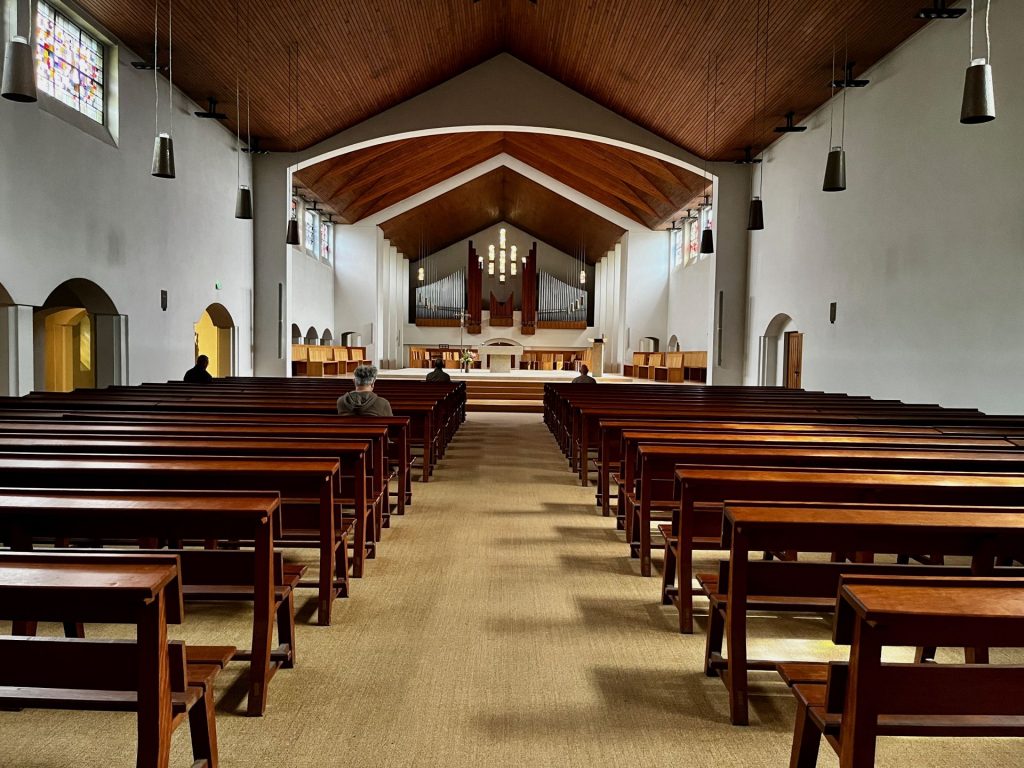
This place is perfectly considered. Built with precision. Then unaltered.
It is a deeply calming experience of its own right, but to be there, as we were yesterday, for Nones, the afternoon prayers, was spiritual.
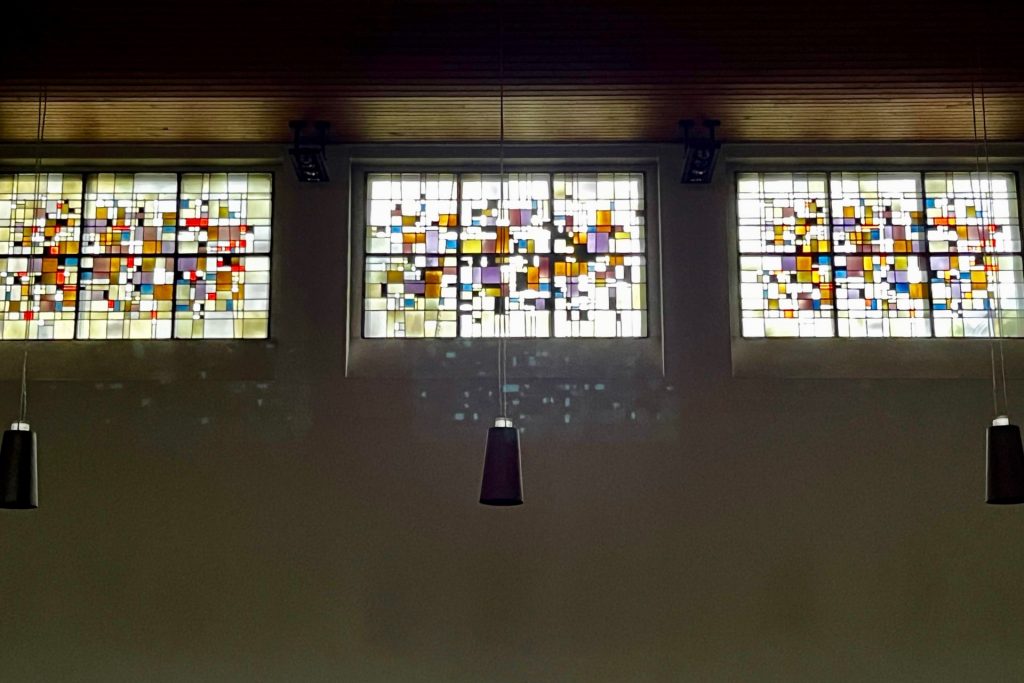
Into the wild. Cap de la Chèvre.
Staying on aires and campsites is all very well, it’s easy, but it’s not the wild vanlife we loved for so long and crave still.
We wound south down the tiny lanes from pretty Crozon for half an hour to reach the wind ripped headland of Cap de la Chèvre. Think Lizard Peninsular, without the village, and with higher cliffs.
There’s a naval watchtower that lends a sinister edge, and miles of scrub, appropriately punctuated with goat willow wherever there’s a dip deep enough to give a hint of shelter.
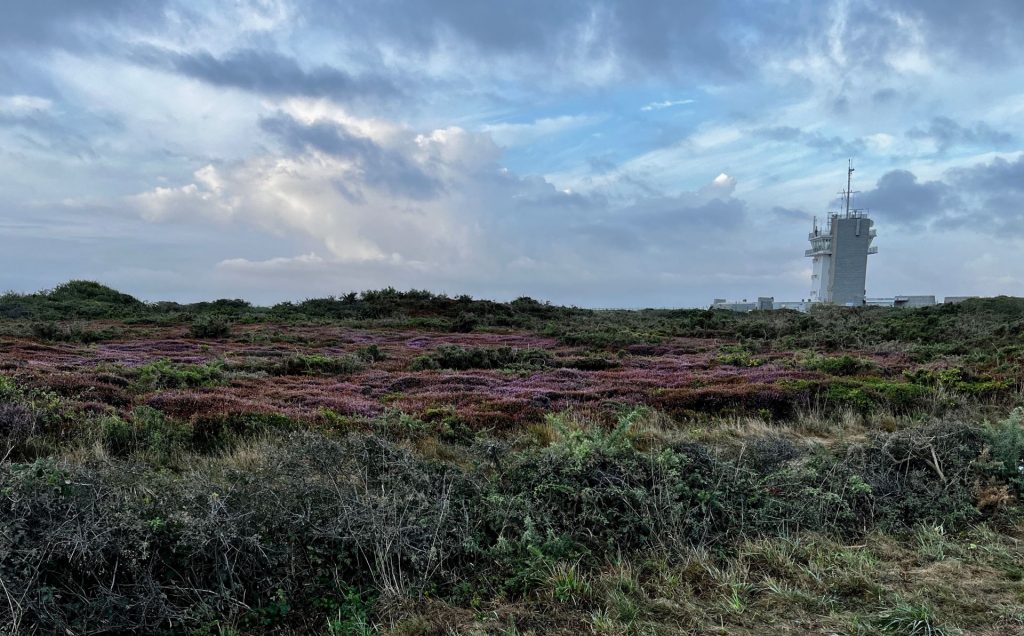
The trod to the side of the road suggests that in the season this is a route that’s busy with both walkers, and cars bringing more walkers, but today there’s hardly a person, save 15 or so other vans hunkered down for the night.
It’s wild. It’s beautiful. It’s home, for now.
The wind dropped a little, the rain only lashed a few times, and we slept, and slept again.
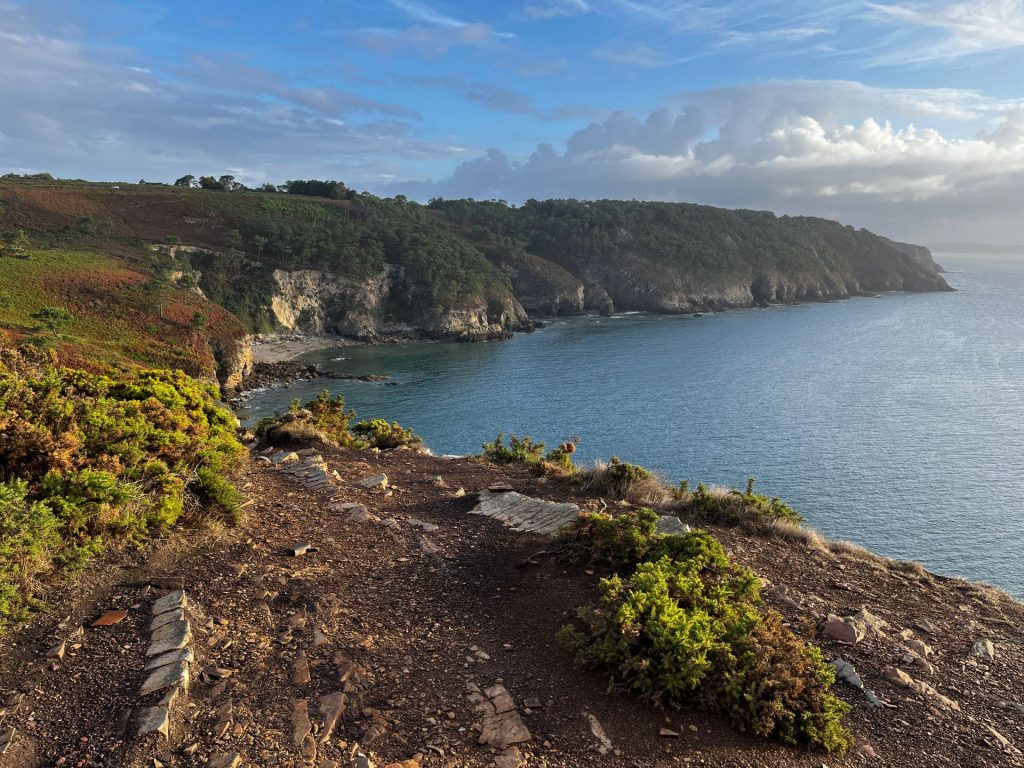
Prices.
Last time I was in Paris I was shocked at how expensive everything seemed. It was five years ago and Polly and I took a few days in the capital to visit my college friend Tantely. Eating out was especially punishing.
This week at the supermarket, in the cafés, in the restaurants and bars I’m pleasantly surprised at every bill. We haven’t bought fuel yet, but at 1.72 Euro a litre, diesel is a wallet swelling 35p cheaper than at home. If 35p doesn’t sound much to you let’s extrapolate – that equates to over £25 a tank.
Perhaps that’s why they’re smiling – they’re laughing at Jonny English and his need for sovereignty from the Union right before external threats ensured the Union became the best gig in town.
Chateaulin and Le Bistronome.
Let’s leave the coast for a while and sample inland Brittany.
Past Le Menez Hom, the big moorland hill that dominates the area and was worshipped by the ancients just as its equivalent in West Penwith. It even has a quoit.
Chateaulin will be our biggest town for this tour, but it’s no bigger than Penzance.
There’ll be luxury at the big Camping de Rodaven. Hot showers, flush toilets. All this feels good after our brief sample of the wild.
The walk along the river to town feels so French.
The rain that drenched us feels so Cornish.
After checking out three options for dinner the choice was easy. It had to be Le Bistronome.
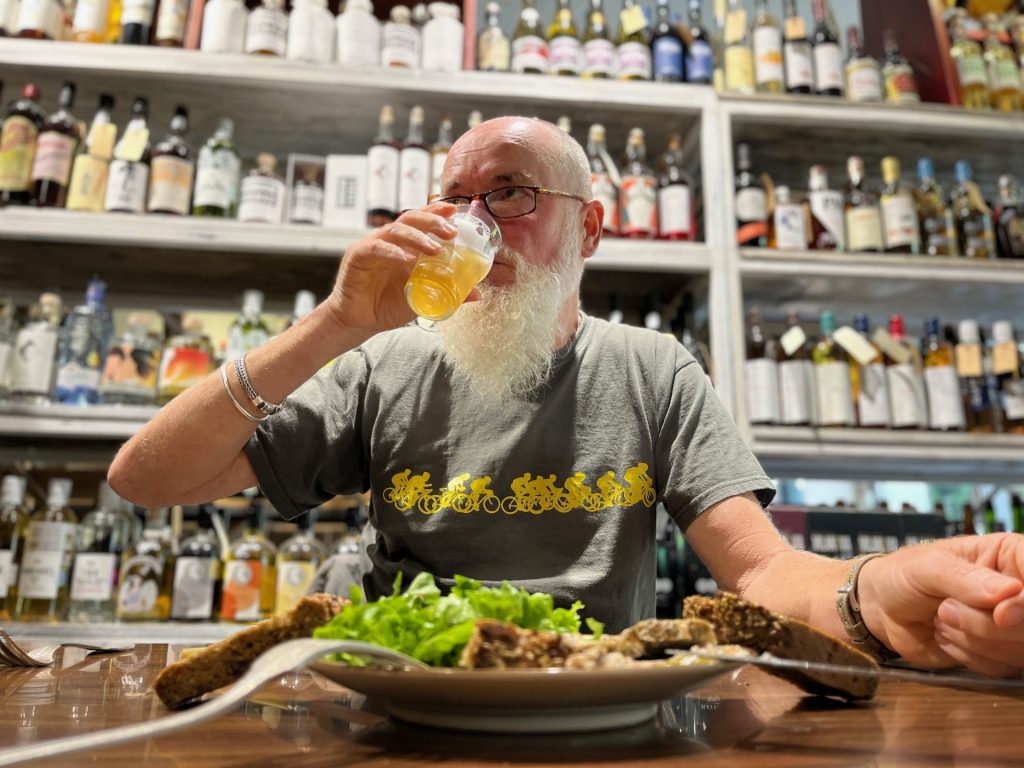
Le Bistronome. The opposite side of the river from us, but still only 10 minutes walk.
A wine cellar stocking fabulous regional drinks. Whiskies finished in brandy casks. Six times distilled vodka. Pastis from here, there and everywhere. New spirits that experiment with botanicals in ways that have yet to earn names. And fabulous, simple food.
Minty’s Croque Madame was a hearty meal. My tartiflette with local meats sent the cholesterol soaring, but tasted great. I asked where my cidre was from. “My friend’s farm 5km away towards the monastery you so loved.” Our pastis, his recommendation, was from the nearby Isle de Ré.
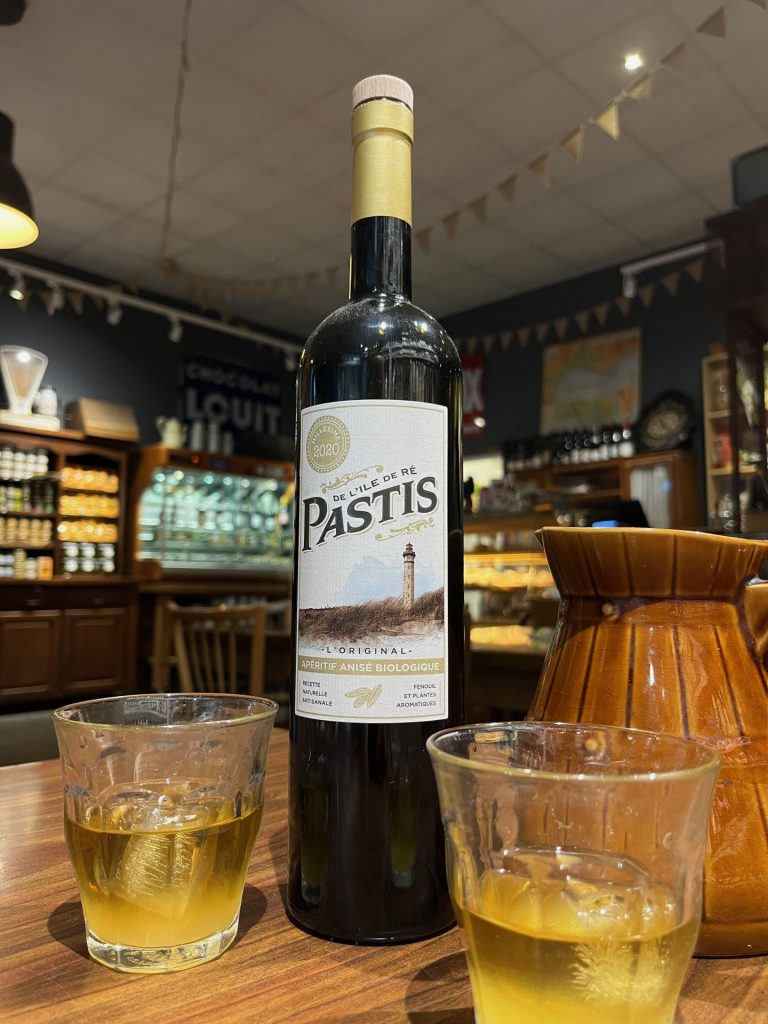
The team was again so jolly, so engaging. It wasn’t cheap. But it was a treat that we’re likely to come back for. When we left the boss told us the evening was only then starting. We believed it, but our early morning routine sees us in bed by dusk most nights.
Saint Trégonnec.
There’s an excellent aire in the pretty village of Saint Trégonnec where you have to marvel at the generosity, or forethought, of the excellent facilities. Large spaces for 18 vans, each defined by long established hedges. Water and toilet emptying facilities. Good toilets nearby.
Why is most of England so backward in this regard? Such facilities don’t have to be free, even those charging £10 a night are well used across Europe. Instead, at home, public toilets are becoming as rare as generous spirit. And signs in pubs and cafes warn against anyone other than customers using their facilities. Grrrr.
This delightful village is dominated by its fabulous church, but first call for us was the bakery.
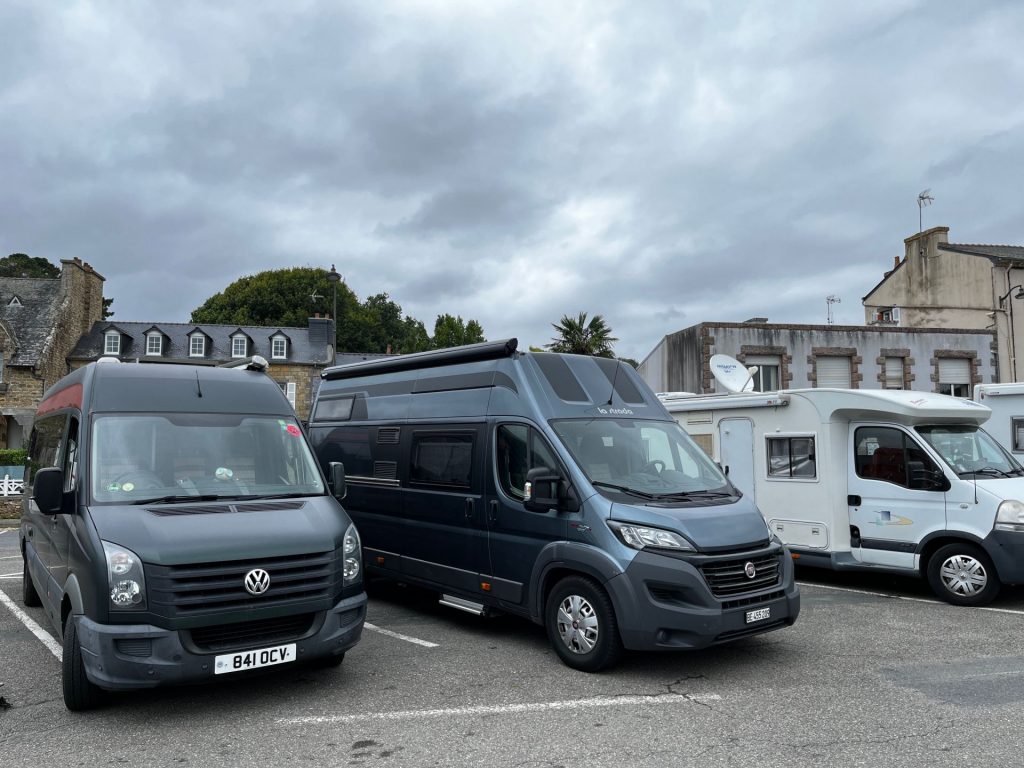
The French Bakery.
Britain has some extremely good artisan bakeries and I applaud their efforts at educating the people around them about just what an exciting product bread can be.
In France every village has a baker, and nearly every one is an adventure. Varieties compete to create ever more mouth tearing crusts. As a lad it would take me a few days before I was comfortable eating the baguettes of La famille Iva.
In school we’re taught to order a baguette, but what else have we here? A zig zag, a grue, a flute, a module, a plié, perhaps a chapeaux, joco, Parisenne, paneton or pavé, should it be a campagne, cereals, or shall we simply stick to la tradition?
I jotted this list down in the small shop in Saint Trégonnec as the assistant made us two sandwiches. These were just the breads that were still in stock, it was after midday already and many had sold out. The sandwiches (in white flutes) were superb, and even with a generous tarte au pommes for dessert still cost less than £7.
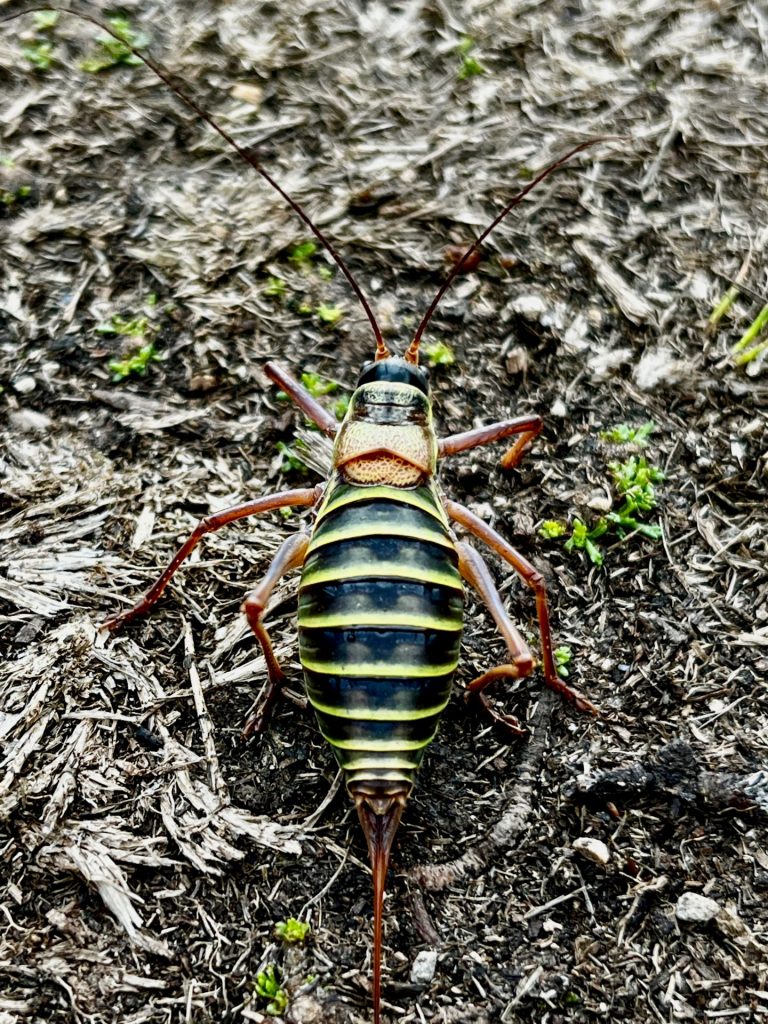
Saint Pol de Leon.
Saint Trégonnec was to have been our base for the night, but I hadn’t seen the sea in nearly 24 hours and I was missing its comfort.
Polly has an appointment at the vets for Friday afternoon in Saint Pol so we headed there a day early to wander the streets in the rain.
For my swim I was alone. Perhaps everyone else knew the heavens were about to open. While it doesn’t matter when you’re splashing about in the water, getting out to rain soaked clothes is a bummer, unless, like yesterday, there are hot showers at the campsite just a hundred metres away.
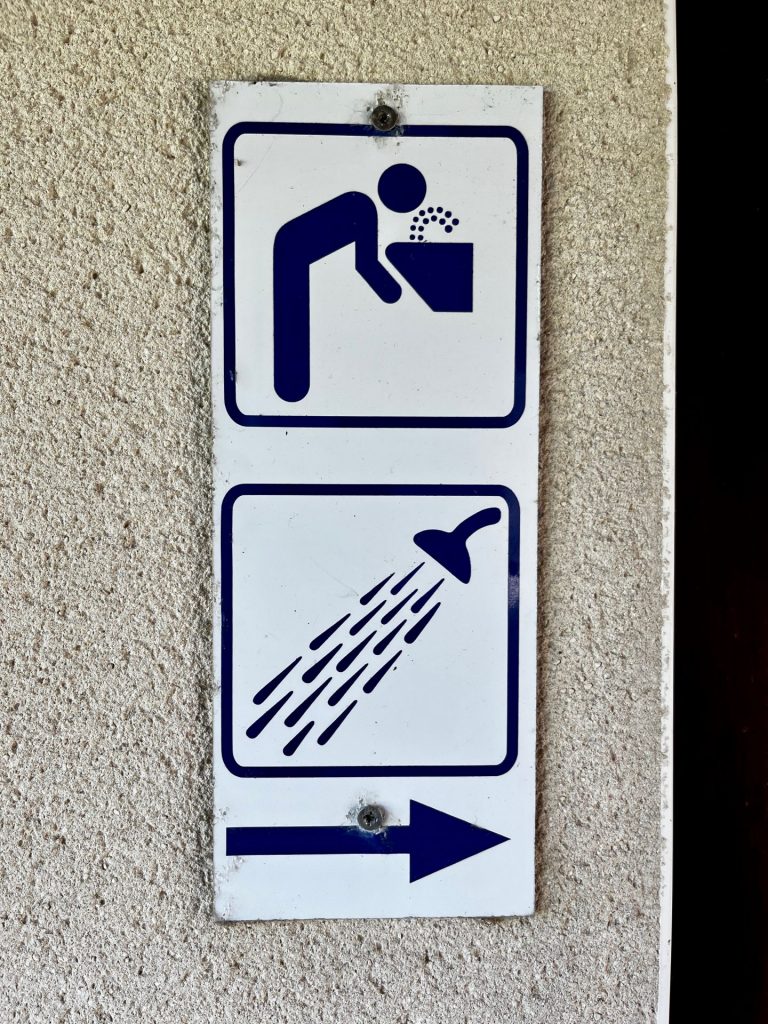
Thursday 8th September.
For whatever reason we decided to eat in the van.
Because of that we were sitting listening to Evan Davies close his PM programme at 6.00 on Thursday 8thSeptember. We were only half listening when he announced that in the last few seconds the BBC had been advised by the palace that the queen had died.
It has always interested me how so many of the thousands of people I’ve met across the numerous countries we’ve travelled have taken an interest in the queen. She was there for everyone, not just the English, the British, or members of the Commonwealth. It is likely that no other living person earned such respect, not just from followers, but from republicans too. She was certainly the most famous person alive, and had been for more years than most of us have been alive.
It’s a moment in time. The death of one among so many billions. The death of one who mattered.
The news knocked us. As I said to the campsite owner this morning, we believed she would go on forever.
That space thing.
France has a population similar to that of the UK, but three times the land mass. Take Scotland and Wales out of the equation and the picture is exaggerated. In France there are 119 persons per km square. In England there are 434!
In France there is space. Oodles and oodles of space.
Huge houses spread across the hillsides overlooking the many islands of the bay. Saint Pol de Leon has now joined its town to its seafront. And yet it looks OK.
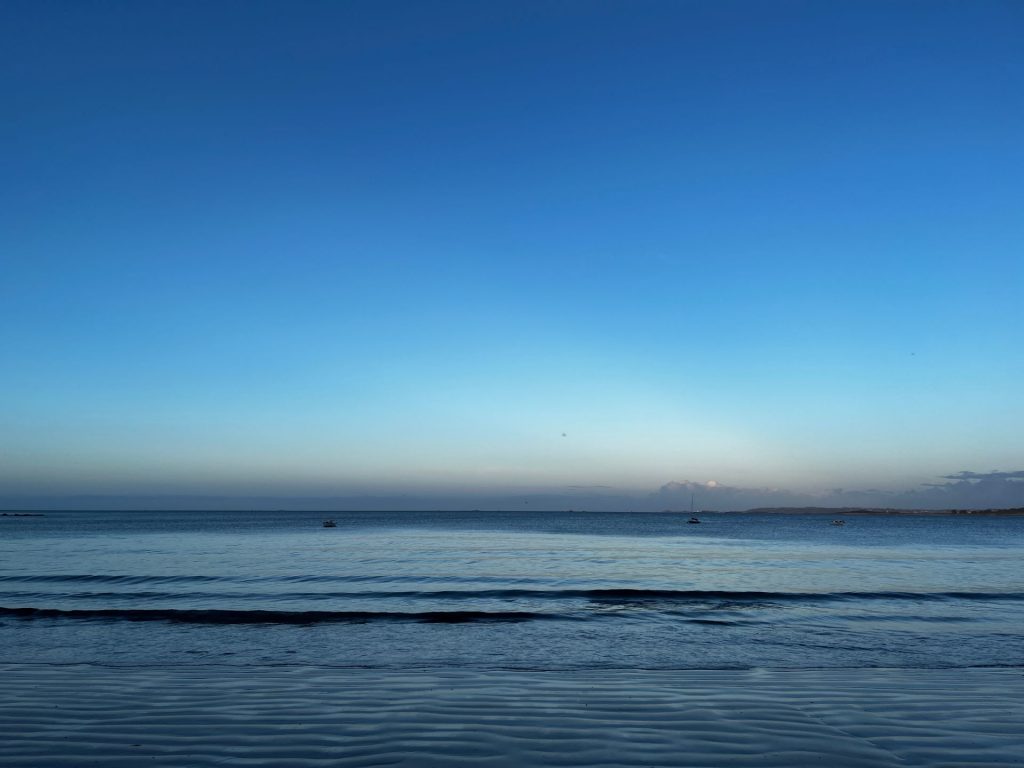
Once beyond the centre of a town the terraced house is almost unheard of here. Challenging new architecture sits comfortably among the restored farmsteads of those who still work the land. Here cabbages dominate the autumn crops, there’s a little grazing, but more hobby farming than anything they could live off.
The vernacular stands out, because of the warmth of the stone, the patina of the slate roofs, the smaller windows of the old. Somehow all these expensive new homes that were probably labelled as monsters at the time of their building fade in comfortably and the scene is one of calm.
Our excellent Camping Trologot was handy for the beach, but a bit far to walk up to the town. In the town there is clearly wealth, and it’s a hotspot for rather tempting restaurants.
Polly’s the most expensive passenger.
We weren’t there to eat though. We needed Polly’s health check at the vet before she’s allowed to travel home. The vet was thorough, she asked lots about Polly’s injury from years ago – and she told me in no uncertain terms what she thought of Brexit. According to her the documents we need from the English vet cost anything from £115 to over £200 depending on what the vet thinks they can get away with. Polly’s were £160. Her ferry ticket was £60 and her French vet visit was £40.
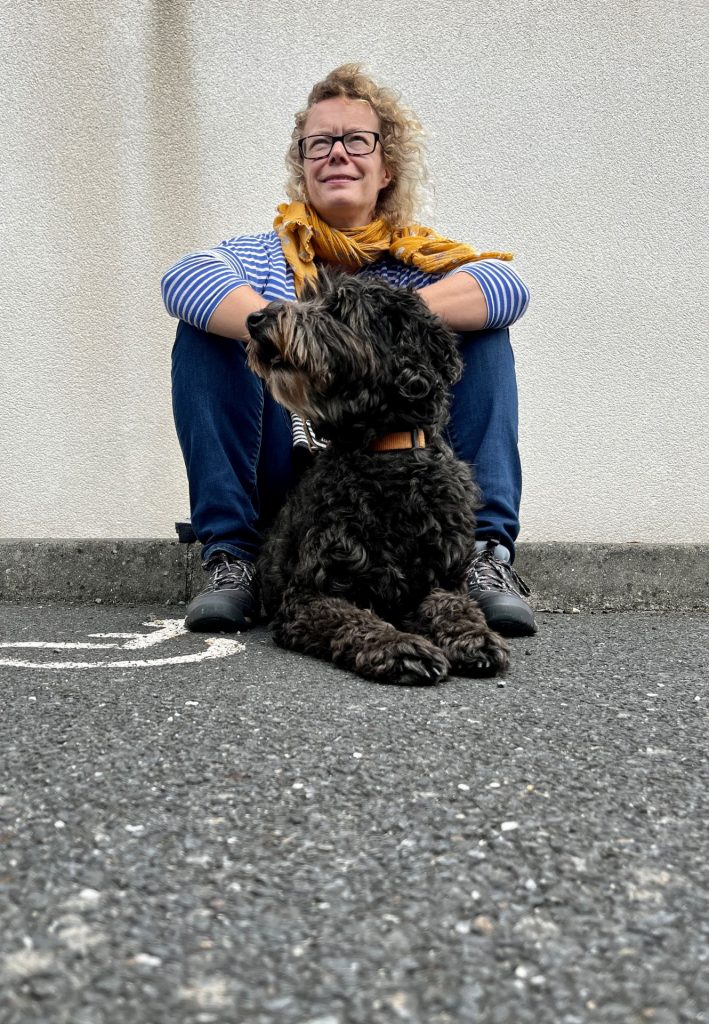
Last day.
This isn’t travel. It’s just a holiday, and holidays come to an end too fast.
It’s Saturday, and tomorrow morning the ferry will be waiting to take us home.
Roscoff is a charming port town and well worth a few days. We’ve been, and stayed, many times before.
This time there’s no romantic hotel for The Wanderers. Our overnight spot is in the disused station car park among 50 or more other vans. There are good toilets. It’s free. We’re welcomed even. Nearly every van will eat at one of the gorgeous restaurants in the town tonight, and many will take their breakfast there too. It makes sense. Doesn’t it?
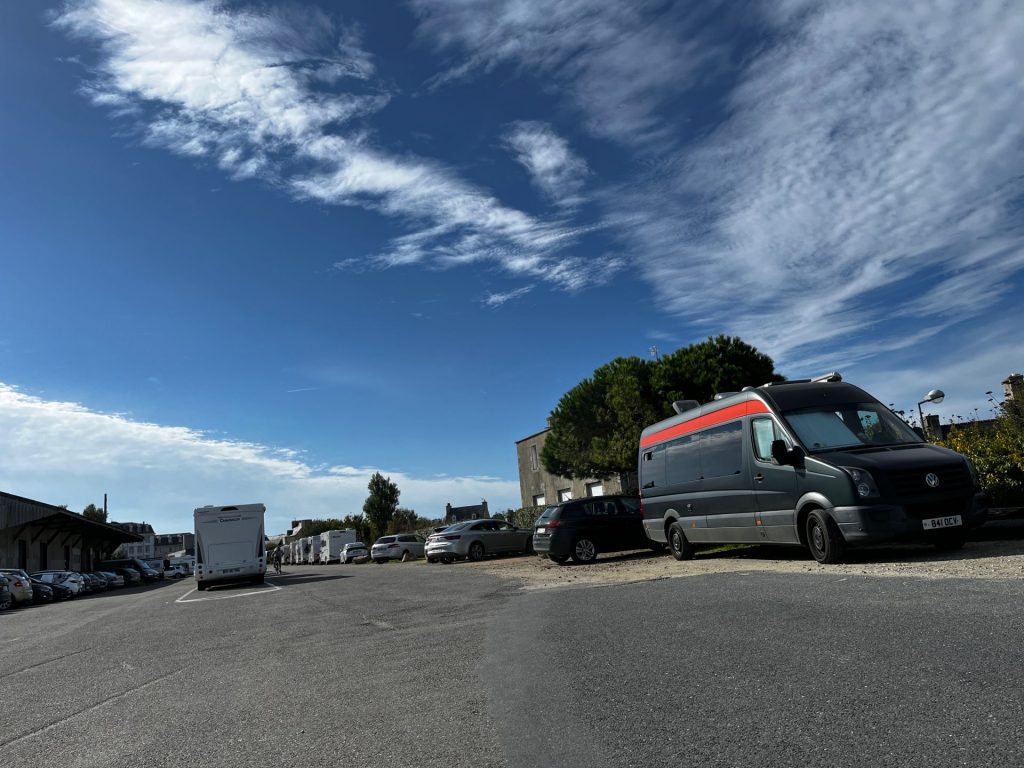
After a walk to the excellent Jardin Exotique we amble past ever more tempting terraces where crêpes and steak frites are the order of the day. Muscles for me, an interesting and huge Breton sausage for Min. We’ll be back for crêpes and cidre later.
Then an early night. And it’ll all be but a memory.
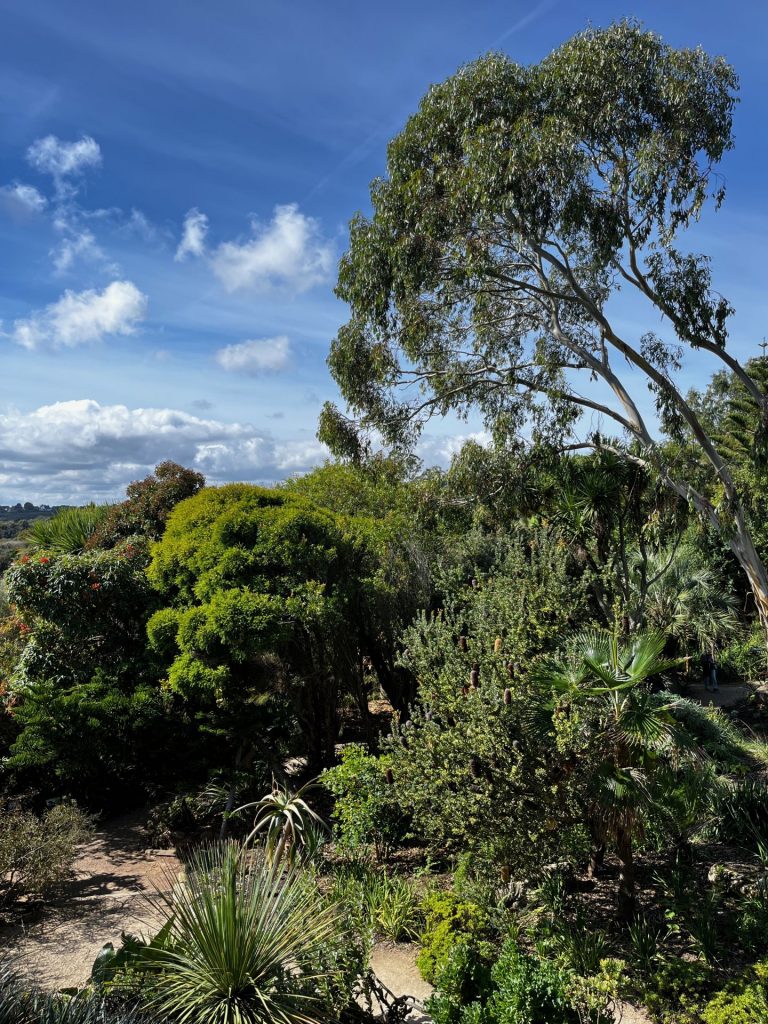
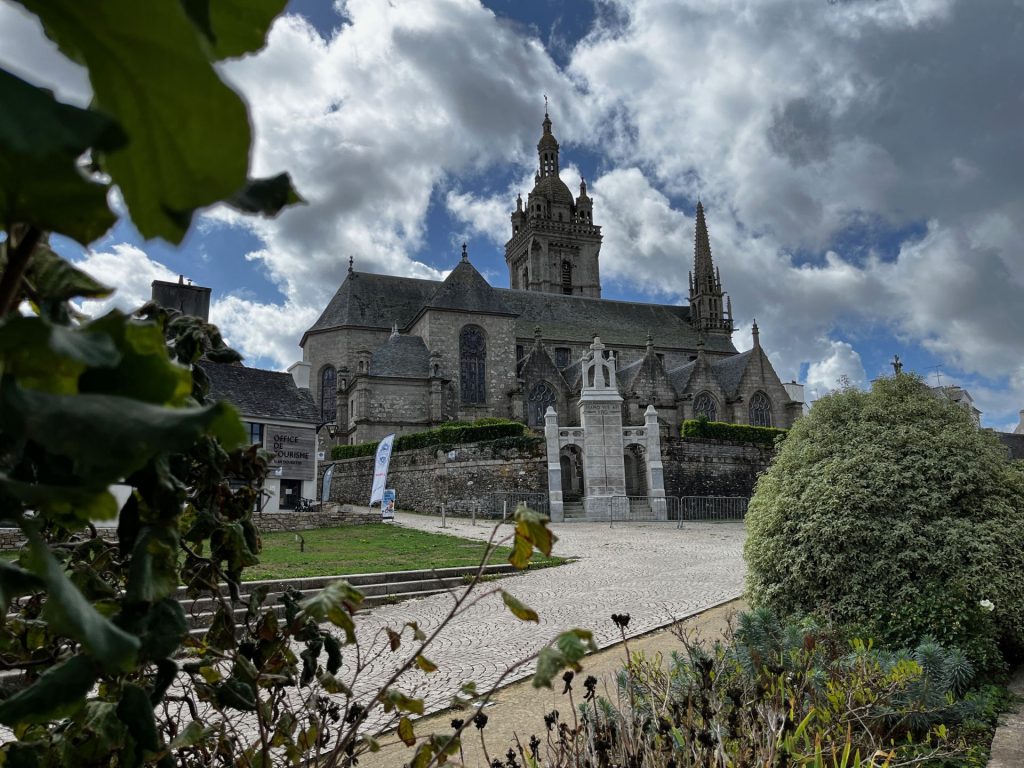
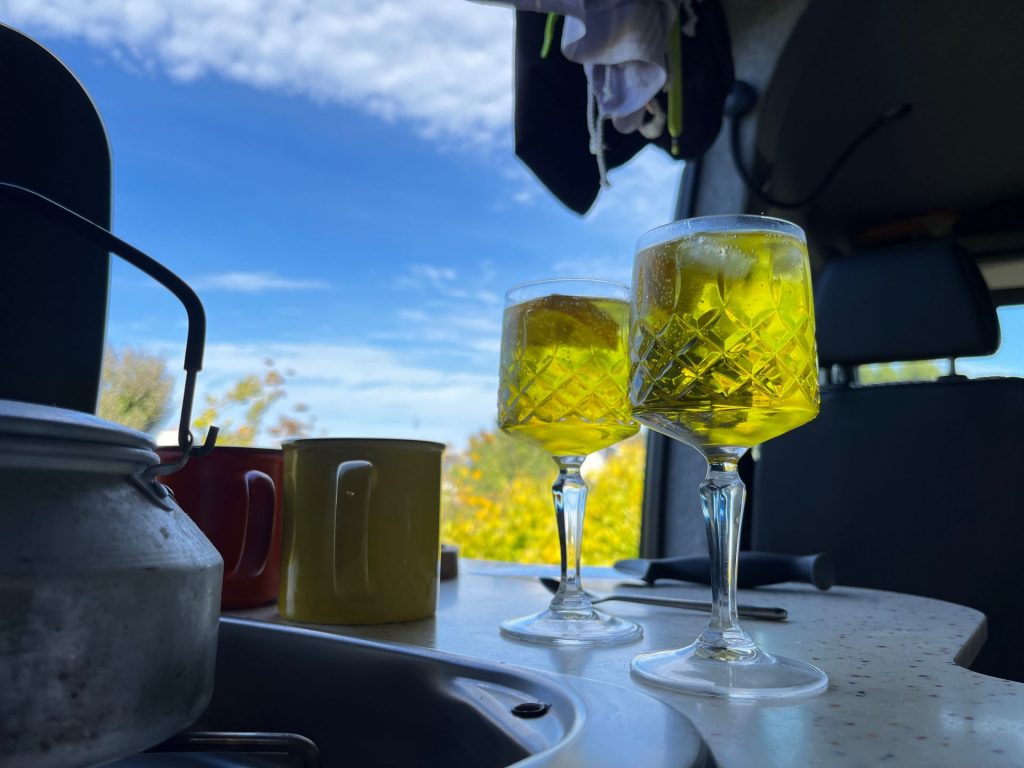
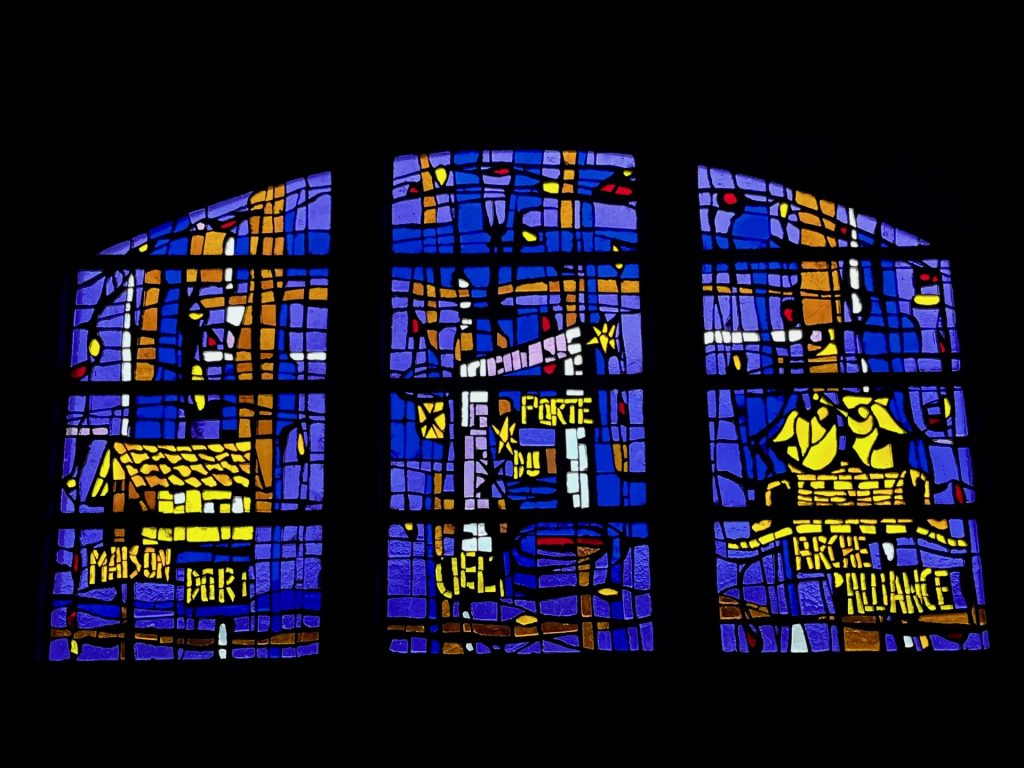
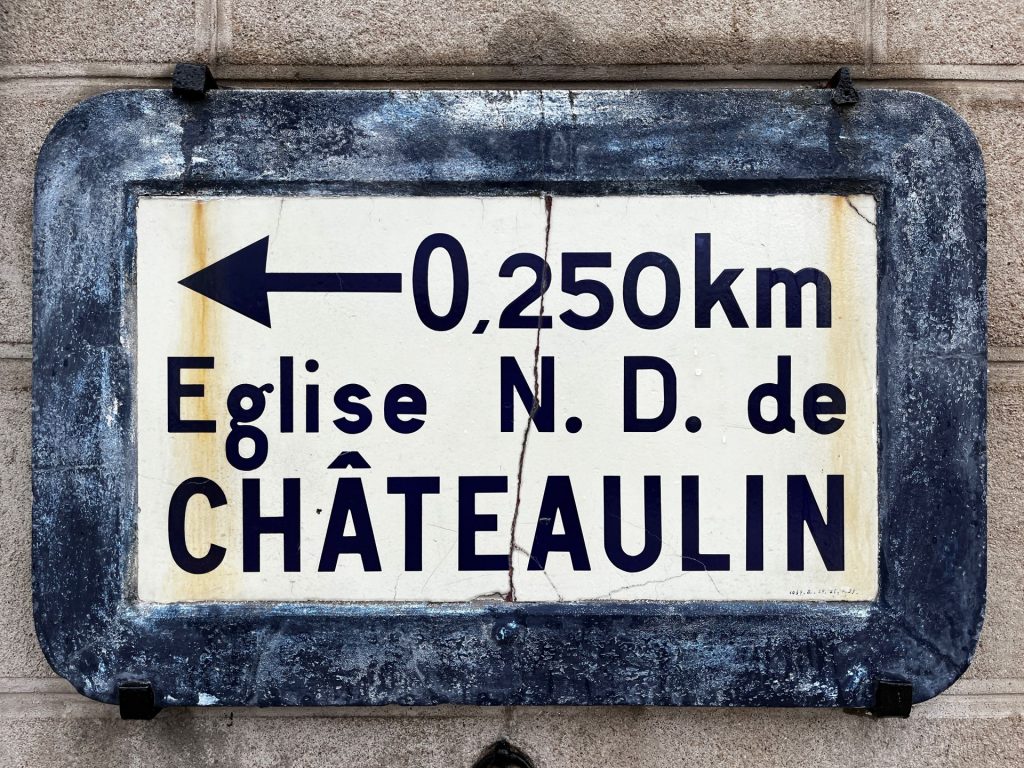
Afterword. The ferry back was the Pont Aven, the flagship of the Brittany Ferries fleet and an absolute beauty. This is probably the closest I’ll come to a cruise. It’s a roll on roll off, and so as one of the first vans on we were one of the first off. We were probably past Liskeard before the last cars left the boat.


You have not lost your gift with words my friend. Although still in France for a while yet you see things which pass me by. It is truly an extraordinary, welcoming, beautiful and maddening land.But to be a true Francophile the question must be posed: In regard to croissants are you a fully fledged dunker?
Dunk until it drops baby!
A mouth watering post. So admire the way you and Minty (and Polly) travel. True adventurers.
Best to you both. Maggie xo
Thanks Maggie – sorry I missed your response.
Kelvin, thanks for such a long and varied post! Sounds like an interesting break! I didn’t know they charge dogs for using the ferry! I hope polly got a golden feeding bowl and a boxspring doggy bed!
Loved to see you three on the move again, a wonderful read; we were on Ile de Re for late summer this year … hope to see you again Far West when we re-venture (at some stage) .. Manny is still feisty in his geriatric phase! Best wishes, Jo, Misha and Matilda (et le chien, Manny)..
Jo
Great to hear from you.
We’re beginning to long for a house after five years in tin boxes. Ours is progressing, but slowly. We keep having nice hotel stays and lying in the bath for the weekend (OK, slight exaggeration, but you get the point).
We’re off to Tregiffian next weekend, bathing (and drinking) at the big farmhouse, but staying in our van.
Isle de Rey – wonderful. We’re considering long term renting our house when it’s complete, and applying for the 12 month French visa. I’m determined to live part of my life in France.
And Misha. What’s he up to?
Love from the fields.